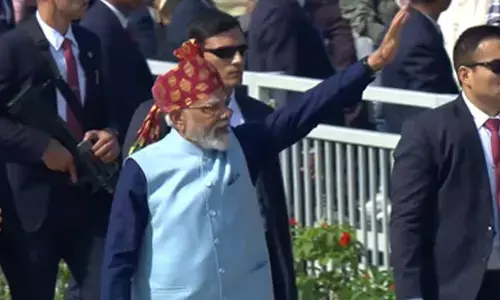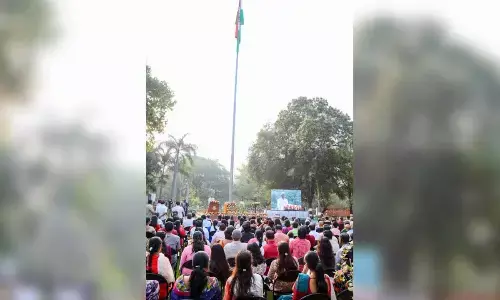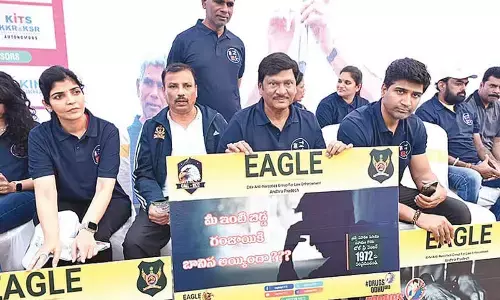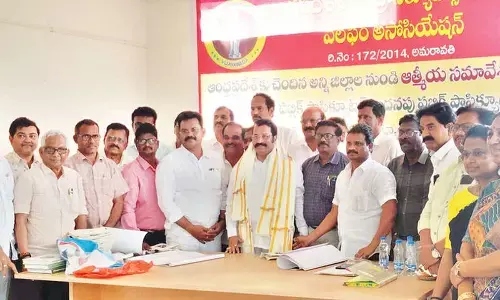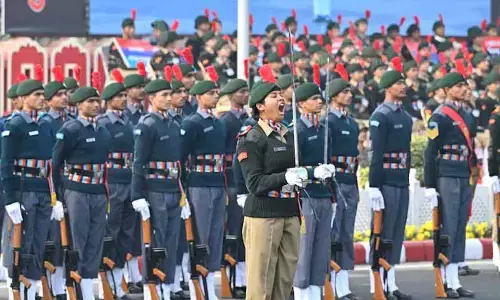India's PSLV rocket lifts off with 2 Singapore satellites
Share :
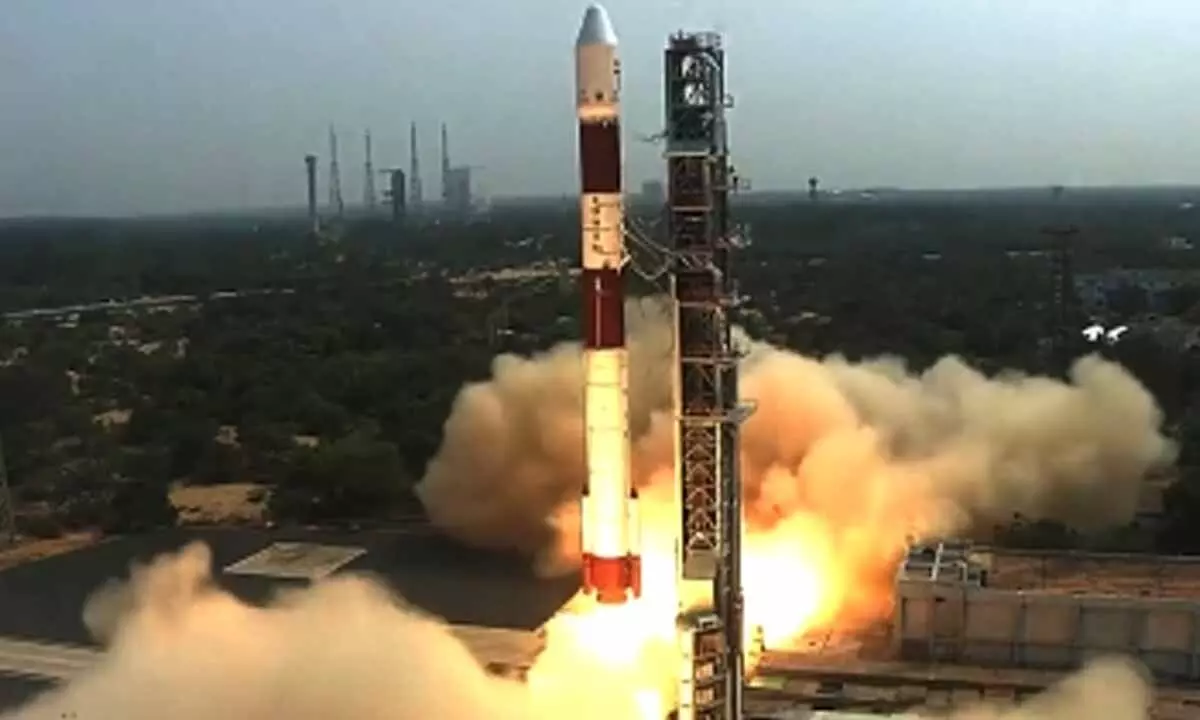
India's PSLV rocket lifts off with 2 Singapore satellites
India's Polar Satellite Launch Vehicle-C55 (PSLV-C55) on Saturday lifted off with TeLEOS-2 and Lumilite-4 satellites from Singapore.
Sriharikota (Andhra Pradesh): India's Polar Satellite Launch Vehicle-C55 (PSLV-C55) on Saturday lifted off with TeLEOS-2 and Lumilite-4 satellites from Singapore.
The PSLV Core Alone variant rocket carrying the 741 kg synthetic aperture radar satellite TeLEOS-2 as the primary passenger and the 16 kg Lumilite-4, a technology demonstration nano satellite as the co-passenger blasted off from the first launch pad at Satish Dhawan Space Centre (SDSC) here at 2.20 p.m.
If the launch is successful, the Indian space agency would have launched 424 foreign satellites belonging to 36 countries since 1999 with its rockets-bulk of the numbers with the PSLV rocket.
The rocketing on Saturday was made possible by NewSpace India Ltd-the commercial arm of India's Department of Space -- by contracting with the two parties.
These two satellites apart, there are seven non-separable experimental payloads which are part of the rocket's final stage (PS4).
They belong to Indian Space Research Organisation (ISRO), Indian Institute for Space Science and Technology (IIST), Bellatrix Aerospace, Dhruva Space, and Indian Institute of Astrophysics.
ISRO uses the final stage (PS4) of the PSLV rocket as an orbital platform for in-orbit experiments and has named it as PSLV Orbital Experimental Module (POEM).
The four stage expendable, 44.4 m tall PSLV-C55 rocket weighing 228 ton slowly rose-up towards the skies from the first launchpad with thick orange flame at its tail.
The rocket gained speed as it went up while emitting a rolling thunder sound.
The PSLV rocket is powered by solid (first and third stages) and liquid (second and fourth stages) fuels alternatively.
The PSLV in normal configuration is a four stage/engine expendable rocket powered by solid and liquid fuels alternatively with booster motors strapped on to the first stage to give higher thrust during the initial flight moments.
The rocket that flew on Saturday was the 57th flight of PSLV and 16th mission of the Core Alone variant, without any strap-on motors.
According to ISRO, the TeLEOS-2 satellite is developed under a partnership between DSTA (representing the government of Singapore) and ST Engineering.
Once deployed and operational, it will be used to support the satellite imagery requirements of various agencies within the government of Singapore.
The TeLEOS-2 carries a synthetic aperture radar payload. TeLEOS-2 will be able to provide all-weather day and night coverage, and capable of imaging at 1m full-polarimetric resolution, ISRO said.
The Lumelite-4 is co-developed by the Institute for Infocomm Research (I2R) of A*STAR and Satellite Technology and Research Centre (STAR) of the National University of Singapore.
The Indian space agency said Lumilite-4 is an advanced 12U satellite developed for the technological demonstration of the High-Performance Space-borne VHF Data Exchange System (VDES).
Using the VDES communication payload developed by I2R and STAR's scalable satellite bus platform, it aims to augment Singapore's e-navigation maritime safety and benefit the global shipping community.
Just over 19 minutes into its flight, the PSLV-C55 will orbit the TeLEOS-2 and followed by Lumilite-4 into an Eastward low inclination orbit, ISRO said.
With the launch of 36 OneWeb satellites in March this year, ISRO had launched 422 foreign satellites till date. The number is expected to go up on Saturday.







